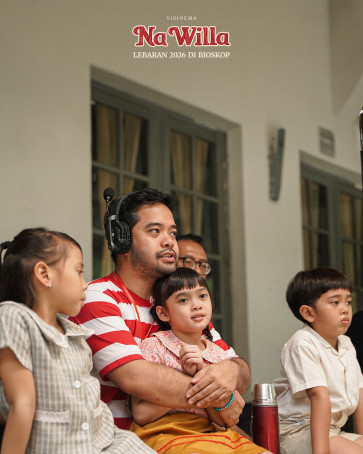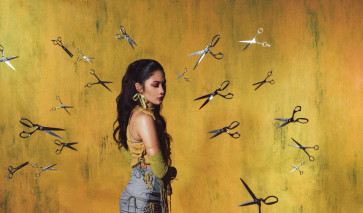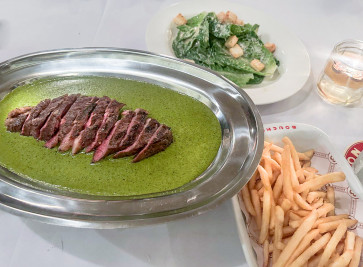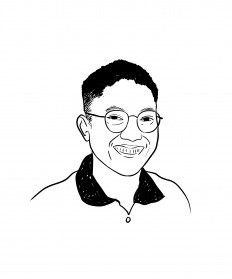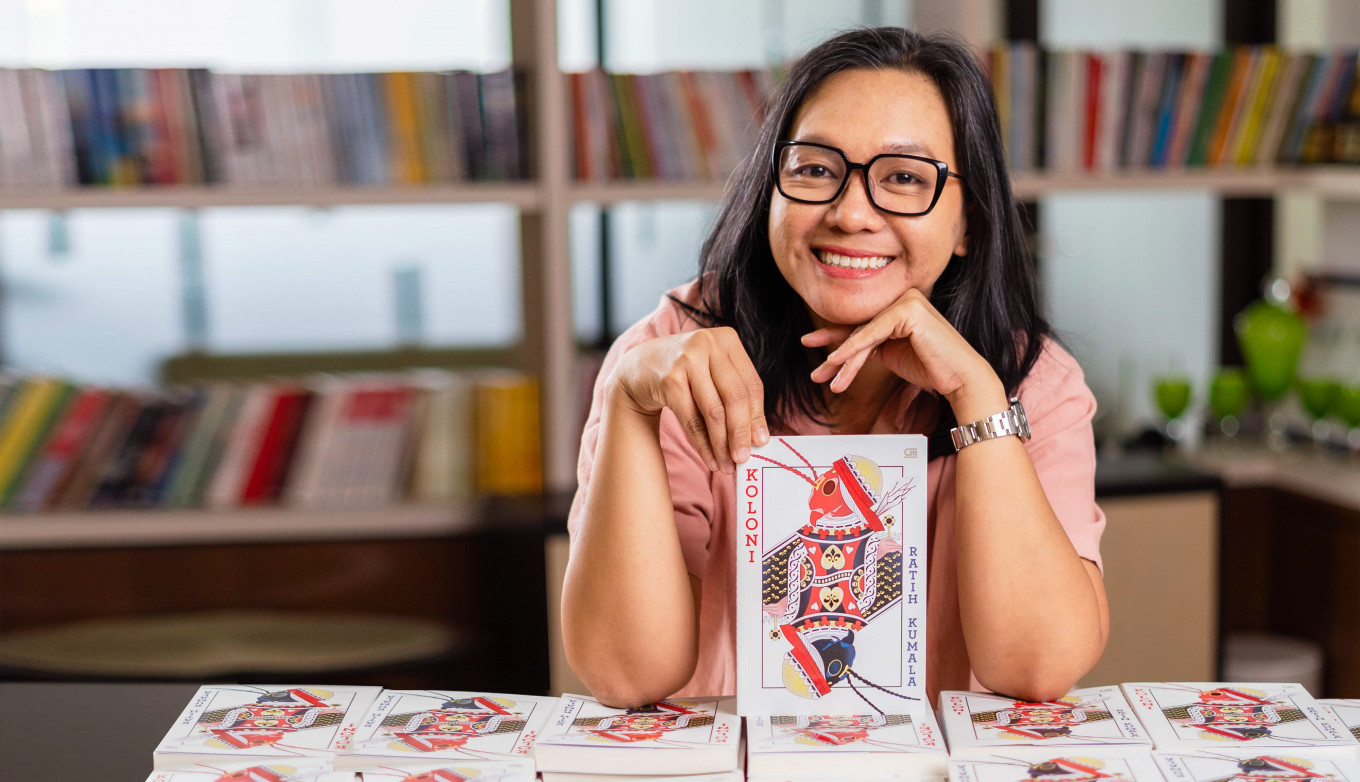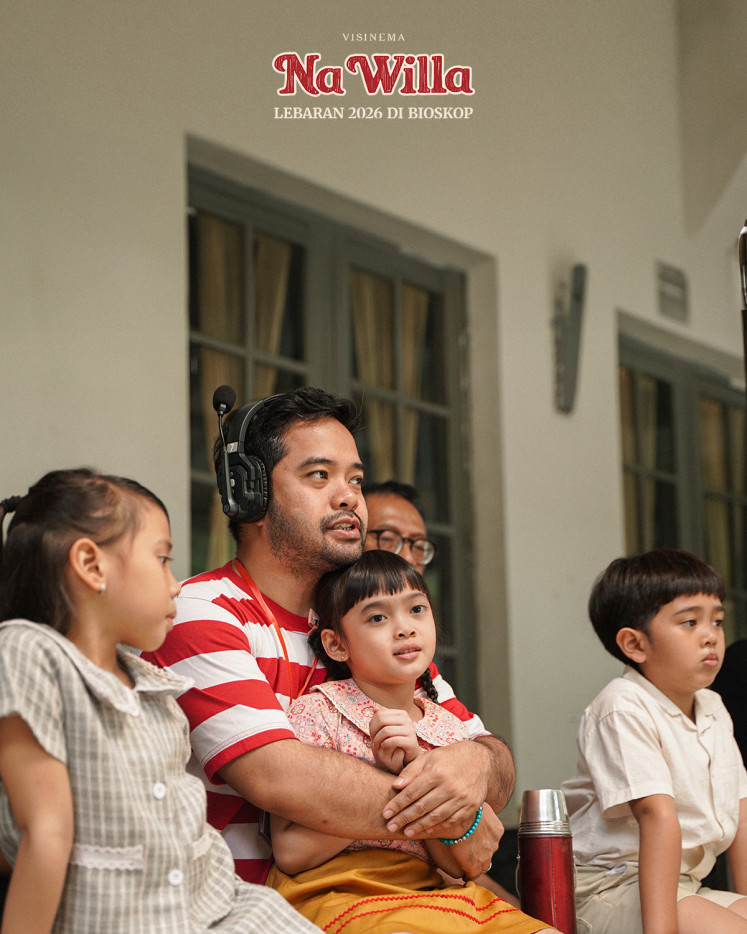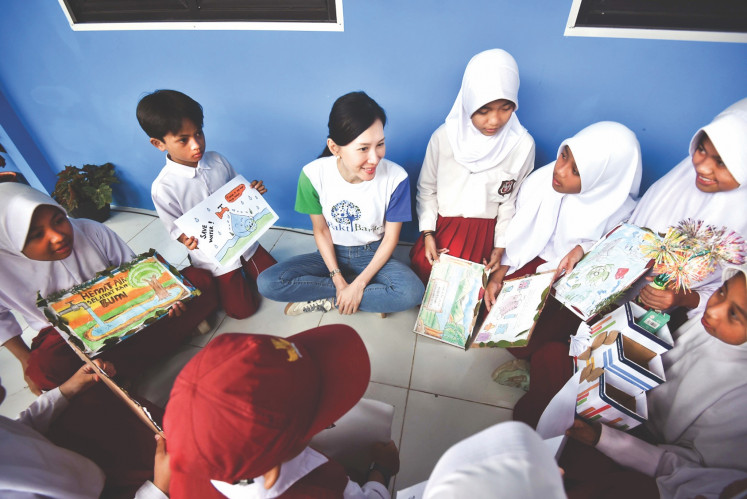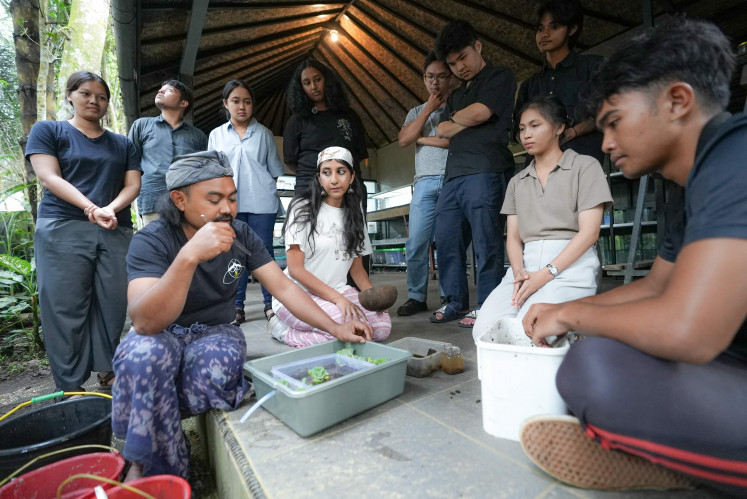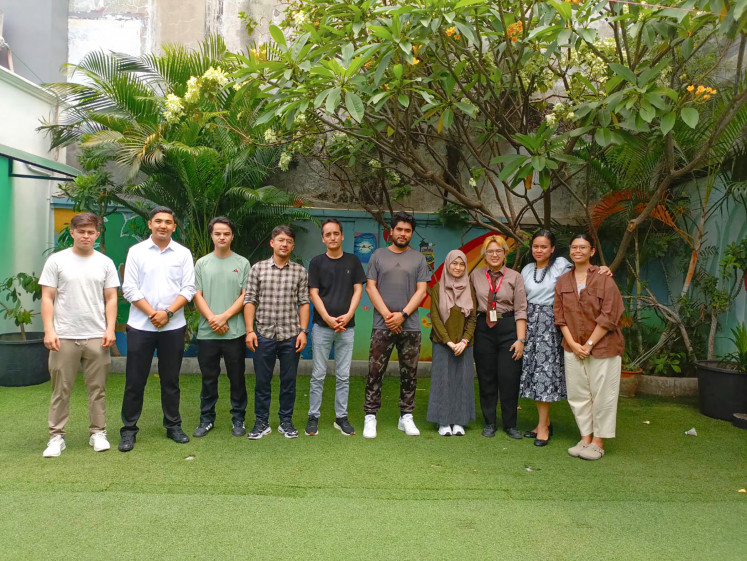In a world still run by patriarchs, the writer behind Cigarette Girl turned to a tiny, underground matriarchal society to find feminist answers.
Ratih Kumala’s latest novel Koloni (Colony), freshly announced for English translation and global distribution by Penguin Random House SEA, follows the life of Darojak, a young queen ant, navigating survival after humans destroyed her colony.
Ratih is one of the few Indonesian women authors with work that’s traveled abroad, joining the ranks of Intan Paramadhita, Laksmi Pamuntjak, and Reda Gaudiamo. But globally, readers still mostly reach for the men—especially Pramoedya Ananta Toer and Eka Kurniawan (who happens to be Ratih’s husband).
With Koloni, what sounds like an insect fable soon unspools into a sharp, layered critique of power, patriarchy and the exhausting roles society demands we play, especially as women. But while Cigarette Girl is more direct and blatant, Koloni is more subtle.
“Humans are just like ants,” Ratih tells me during a conversation on the sidelines of the Ubud Writers and Readers Festival. The world of ants, much like ours, is always busy.
But the novel didn’t actually start as one about ants.

Thank you!
For signing up to our newsletter.
Please check your email for your newsletter subscription.
Rewriting rage
Ratih began writing the book in 2024, in response to what she saw happening around her in Indonesia. Initially, the characters were all humans, set in a fictionalized part of the country. With about a third of the novel written, she decided to set it aside.
“I let my work sit for a while and when I read it again, I didn’t like it,” she reflects.
The plot was intact, but the tone wasn’t right. There was too much anger in the writing, and she didn’t want to pass that on to the reader.
“This was not how I wanted to tell the story,” she adds.
So she rewrote it. And somewhere along the way, the humans turned into ants.
From the window of a tall building, people look like ants, she realized. That idea stayed with her, and the more she read about ants, the more they felt like a mirror to human society—especially the parts that don’t get talked about in polite company: class, sex, survival.
She dove into the research, helped by the abundance of documentaries and online communities dedicated to ants. She learned that ants communicate through pheromones, not words. That shaped the style of the book—dialogue appears in italics, without quotation marks. She combined science with imagination to build her own literary insect society.
The result is a novel that’s part fable, part political allegory. Think Animal Farm, but with the emotional layering of The Hen Who Dreamed She Could Fly.
A queen’s burden
The world of ants is not subtle in its hierarchy: queens reproduce, males die after mating and workers carry the weight of everything else.
In Koloni, Darojak, the protagonist, is thrust into this system and must navigate it while carrying the burden of survival and rebirth. With her colony destroyed, she sets out to find a new one. Unfortunately, her new colony is led by Queen Gegana—who only lays male ants.
In the world of ants, the queens are without question the strongest. They birth the worker ants who gather food and the males who exist solely to mate. But a colony that produces only males is doomed from the start—it revolves around a single queen, and once she dies, the entire colony collapses.
The question then becomes: Who will rule the colony?
It’s a sharp commentary on power and womanhood, wrapped in the language of insects.
“In life, you have to keep going, but you also need to know when to stop,” - Ratih Kumala
After finishing the book, I couldn’t help but think of Mulan (1998), which I first watched as a kid in the ’90s. In the opening number “Honor to Us All”, there’s a lyric that goes, “We all must serve our Emperor who guards us from the Huns. A man by bearing arms, a girl by bearing sons.”
It’s a bitter line, but decades later, it still rings true. For all our progress, the world is still shaped by patriarchy.
Koloni flips that script. In the world of ants, survival hinges on the queen. The colony lives or dies depending on whether it can reproduce more queens.
Politics, sex and death
While Ratih has cited Animal Farm as an influence, the novel also evokes the spirit of A Bug’s Life layered with the political maneuvering of Game of Thrones—and the sharpness of Sex and the City, minus the Manolos.
Yes, the book is unafraid to openly talk about politics, sex and even killing off its characters.
It’s not always depressing, though, because it also explores love and the everyday struggles of ordinary beings—something that strangely feels relatable. Even though the story focuses on ants, it feels deeply human through its personification.
By the end of the interview, when asked what she would say to Darojak if she could speak to her, Ratih pauses.
“In life, you have to keep going,” she says—then breaks into tears.
She’s not alone. I, too, feel the Darojak’s struggles. The weight of expectation, of milestones that never end. The way we’re asked to perform strength on top of survival.
“But you also need to know when to stop,” she continues.
Our own colony
This book was born from Ratih’s concern for her country.
Darojak and her fellow ants feel like stand-ins for Indonesian citizens—always moving, always striving, surviving one struggle after another just to fulfill roles we didn’t choose.
Her words to Darojak made something click: We’re not so different from the colony. We work, we serve, we hope our efforts will build something better. But that’s not always how the story goes.
At one point in the novel, a character says, “We’ve stayed too long in this crowded yet unfamiliar place.”
It’s a simple line, but it signals a choice—the option to leave. In the ant world, only queen ants have that power. In the human world, it’s power that determines who gets to walk away and build something new.
Still, like the ants, we carry something deeply ingrained: a nationalist spirit, a sense of loyalty to the place we come from. As one of our national songs reminds us, this country will always be a refuge in old age, until the very end of our life.
Reza Mardian is a winner of the Best Film Critic award at the Festival Film Indonesia 2024 and a “pawrent” to two rescued cats. He writes screenplays every time he finishes rewatching La La Land or Lady Bird.





